Godzilla Review (2014)
There is a moment, in Gareth Edwards' moody, expansive Godzilla movie, when monsters rage amid the crumbling San Francisco skyline while its residents flee for cover underground. Our glimpse of titan beasts fighting tooth and claw is the rapidly narrowing gap between the closing doors, before we're shut in the darkness with the frightened, ineffectual masses. As bystanders we can only cower and wait, an afterthought like the human players in this year's blockbuster.
The original Godzilla was a chiding song of nuclear temperance, Japan using its monster myth to explore the glowing aftermath of the Second World War and the weapons unleashed upon it. Those waters have been muddied in the intervening years. We don't need war for nuclear fall-out; we have that anyway, with disasters like Fukushima, itself the inspiration for a plot point in the new movie.
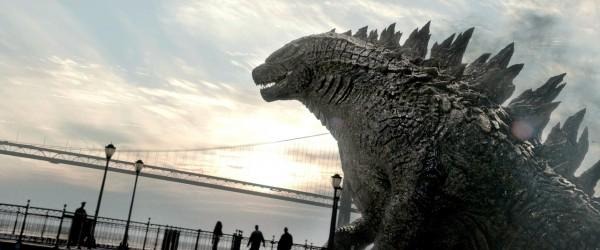
Retold by Edwards, however, the meltdown in this fictional universe isn't through cost-cutting, or slapdash safety protocols, or a short-sightedness to consider safer, renewable energy. Instead, it's an inadvertent casualty of a spawning MUTO – "Massive Unidentified Terrestrial Organism" – the Cloverfield-esque insectile villains of the piece.
The moments that work best are the most knowing; those that nod not only to the legacy of Godzilla movies before them, but monster features in general. There's what can only be seen as a pitch-perfect homage to Jurassic Park at one point, spot on in pacing and sound; in fact, while I could give or take the 3D, if you can get to see Godzilla in a theater set up for Dolby Atmos, the incredible all-encompassing soundtrack is well worth it.
Compared to the sound and the special effects, the human players are a little overshadowed. Aaron Taylor-Johnson as lead Ford Brody, put-upon son and earnest bomb-squad expert, is the strong, silent type, apparently borrowing from the Channing Tatum school of acting for the roll. He's believable enough as a military type, though never really does more than conveniently stumble from ground-zero to ground-zero on his journey home.
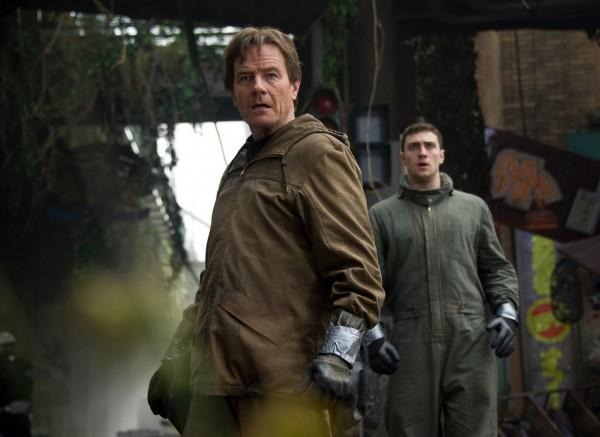
Far better is Bryan Cranston's Joe Brody, Ford's father and nuclear scientist, twisted into a conspiracy theorist by the underwater squawking of monsters and haunted by a disaster he's convinced is a cover-up by the Japanese government. Cranston could have played to the stereotype – scientist turned zealot – but instead it's the most human performance of the bunch, believably obsessional and with at least one beautiful moment of brittle fragility, screaming his forever-unanswered questions just as fate takes the plot almost entirely out of the characters' hands.
Elizabeth Olsen, as Elle Brody – nurse and wife of Ford – punctuates the film at regular intervals with increasingly distressed phone calls, lest we forget that Ford must make his circuitous way home. She's a wasted talent, as is Juliette Binoche who is wheeled out only as backstory to send Cranston's character off the rails and spiraling into compulsion.
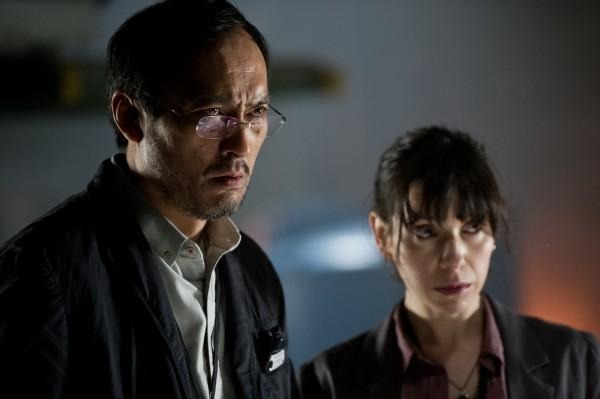
Other cast members last longer but get no more three-dimensional. Ken Watanabe's Dr. Ichiro Seirizawa exists, it seems, to trot out naif Zen wisdom about the balance of nature, with backup scientist Vivienne Graham, played by a wide-eyed and stuttering Sally Hawkins, to remind us of the godlike scale of the movie's monsters, particularly in comparison to ourselves.
In fact, if Godzilla has a lingering flaw, it's how unimportant the humans in the story feel, and how that relegates them to bit-players among the warring CGI. Godzilla and the MUTOs prove resilient to bullets, bazookas, and missiles, and even the judicious application of some nuclear weapons isn't necessarily going to be enough to do more than fatten them up. The combined military might ends up simply skirting around the tsunami waves and crumbling buildings, doing triage for the inadvertent casualties.
There are attempts to make things feel more engaged, but they come across as laughable: cautious squad tactics when approaching monsters that have never shown any interest in or attention to individual people, or a few moments of inter-species eye-contact that left some in the screening room giggling. It says a lot that a subplot has to be specially created so that Ford has something of his own to achieve by the end of the movie.
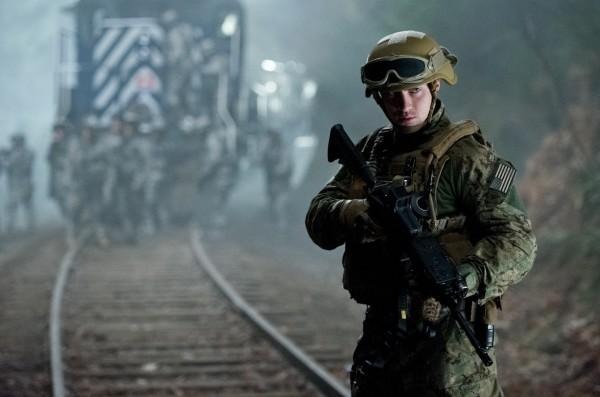
It's impressive, then, that there's plenty of movie left to enjoy, even with those shortcomings. Edwards is clearly of the Jaws school of monster features, teasing the audience with slivers of Godzilla, and while that may come as a disappointment to those more used to the in-your-face style of other recent flicks, to my mind it's a welcome change.
There's a tangible sense of scale, with sweeping shots and clever angles to ground the destruction in our comparatively fragile world. Edwards makes repeated use of showing the monsters' feet from our level, vast and blithely crushing, to emphasize the contrast between us and them. On several occasions, scenes open up from tight, confined spaces to sudden, gaping wounds in the sides of buildings and mountains, again spotlighting the magnitude of the calamity we face.
Then there's the sound. Effects and music stand out particularly, whether it's the chair-rumbling throb of seismic activity and tumbling skyscrapers, or the ominous vibrato of Gyorgy Ligeti's Requiem as paratroopers hurtle through a twisted San Francisco sky, streaming contrails of red smoke behind them.
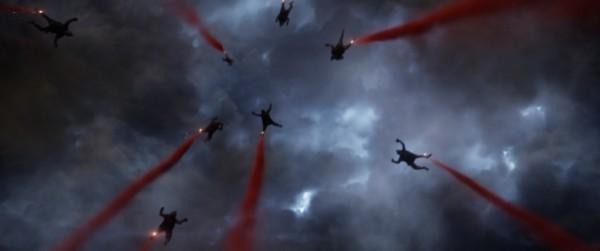
Best of all, though, is Godzilla's roar. Edwards and his audio team apparently mixed animal recordings with the sound of a leather glove manhandling a double-bass, and it's a masterful sound: furious and ancient and triumphant. It's not overused, either, helping preserve its impact as it shakes you in your seat.
This is not your average monster movie. It borrows the tired tropes of tried-and-tested military hero, and obsessional scientist, but pits them against a scenario of such magnitude that, even suspending judgement, they can't be expected to do more than scurry on the sidelines. If there's a message, it's that we're transient and naive and often powerless. Our salvation has little to do with our own inherent value – if it has any at all – and our savior hardly notices us in the process.
Is that too nihilistic for a mainstream, box-office challenger? I'd like to think not; for all the wooden characterization and leaden environmentalist proselytizing, Godzilla is an entertaining movie which trims the amount of audience patronizing it does to a bare minimum. That's a rare talent in the sci-fi movie space right now, and it leaves me hoping that Godzilla will rise from the ocean again soon.
Godzilla opens in movie theaters today, Friday May 16th. All images courtesy Warner Bros.
